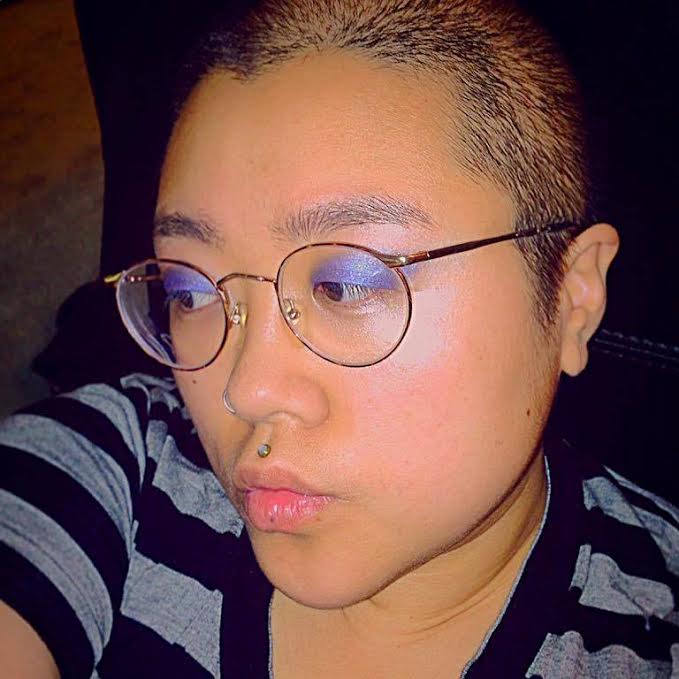
Sung Yim wrote an essay to Columbia University after essays the Korean poet was asked to submit as a student representative of Columbia College Chicago’s Nonfiction writing department were twice rejected and the last essay, cut down to almost nothing to eliminate any controversial bits. The author writes about the author’s own work:
It’s important to keep in mind that my work has always been scathingly political. That is, I would think, part of why the writing faculty nominated my work. It’s also important to keep in mind that they were soliciting short work of a long-form artist. I was clipping and revising each piece I was submitting to them, which took hours of free labor.
Why I am using difficult sentence structure to speak about Sung Yim’s work? It is to respect the author’s desire to meet the world as a, “bisexual genderqueer person,” a term which I don’t understand very well and don’t know which pronouns to apply to. I have asked for enlightenment on this issue, though. Here is a description of Sung Yim from the author’s own mouth:
I’m a South Korean immigrant and a bisexual genderqueer person. That means I’m gendered without consent day to day and experience misogyny because I’m read as a woman. A lot of people don’t even believe in nonbinary genders or know what they are, so my identity is often erased or invalidated in daily exchanges. I’ve also dealt with a lot of biphobia from both straight and gay people–I’ve been told that bisexuals are just confused, that we’re greedy, that we “might as well be straight.” And there are a lot of harmful stereotypes that are perpetuated within queer communities like “never trust a bi girl”or “bi girls are just straight girls trying to prove something.” All of those have simultaneously invalidated my gender identity–how can I be straight or gay if I’m nonbinary? There are a lot of questions I want to ask, and there’s a lot of unpacking I want to do of these harmful notions in the face of these interactions, but I seldom find the courage because it’s rare for me to find a space where I feel safe and comfortable as both a bisexual and nonbinary person.
But first and foremost, I’m a Korean immigrant. All of those intersections of my identity–my gender, my sexuality, and the expressions of them–are filtered through my navigation of a culture that fetishizes stereotypical notions of East Asian femininity. And as much as people love to ask why we need labels, I don’t see it that way. For me, differentiating aspects of myself this way by saying aloud, I am queer, I am yellow, helps me communicate to others that this is my daily experience and affirm to myself in a world that doesn’t seem to think I’m real that yes, this is true and yes, there’s more.
This year, Sung Yim was invited again to represent the student body as a writer and this is what the author read to the assembled, august audience:
Columbia, you don’t give a fuck what I have to say or why. No matter who does actually read it, is touched and comforted by it, and wants it to be heard.
Columbia, all you give a fuck about are funds. You care about ensuring your trustees comfort in their whiteness and wealth. You care about placating the artists you feel you own. You care about your retention rates and name.
You love what I’ve got to say so long as it has no material bearing.
Columbia, you are throwing us a big party and parading us around again and expecting us to be satisfied and even grateful to be given such a grand opportunity to be your shining merit badges.
I won’t sit here and act like it’s not a life-affirming gesture. I won’t act like it isn’t an honor to know that your faculty members—your teachers, nurturers, healers—believe my work deserves this platform.
But Columbia, you as an institution? How you’ve rendered my work politically inert again and again?
I will never be fucking satisfied and I will never be happy to be used as a mascot.
I don’t give a good goddamn about standing on your stage and being seen. I don’t give a good goddamn about celebrity, persona, recognition.
Whatever happened to helping people produce good work? Work that leaves somebody wonderstruck and aching. Work that leaves the artist feeling cleansed and whole? Work that gives somebody a reason to keep living for another day. Work that reminds someone of their importance, reminds someone that they’re not alone. Work that comforts and takes the breath away.
Instead of helping everyone and their mother sell themselves as a lucrative product.
Here’s a non-fiction essay by Sung Yim.
Hat tip to Okaikor Aryee-Price for the great find.
